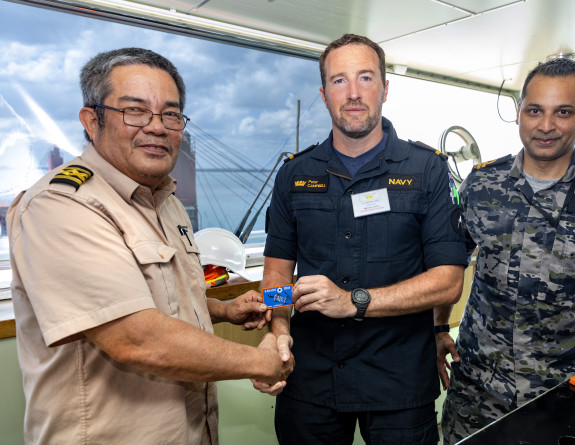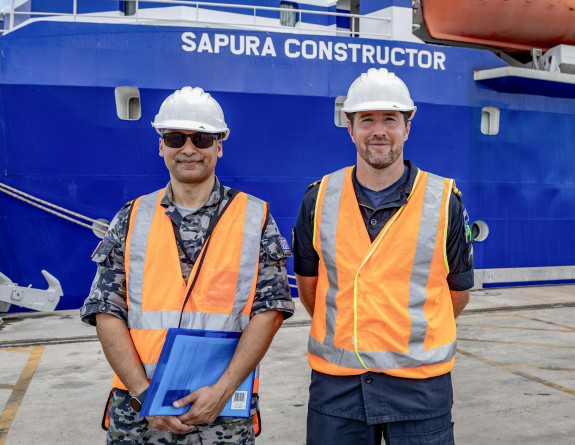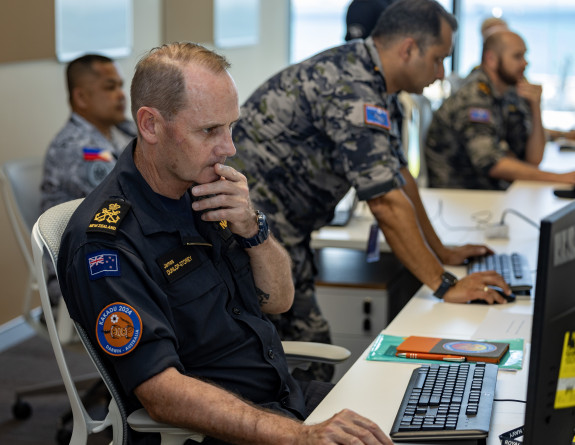
HMNZS Canterbury concludes week-long Fiji deployment
25 July 2025
Unfortunately you are viewing this website on an outdated browser which does not support the necessary features for us to provide an adequate experience. Please switch to a modern browser such as latest version of Google Chrome, Mozilla Firefox, Apple Safari or Microsoft Edge.
Ngā mihi nui
Two Royal New Zealand Navy Reservists joined an international team to ensure uninterrupted passage of commercial vessels during a major naval exercise near Darwin.
Sub Lieutenant Pete Campbell and Petty Officer Maritime Trade Operations (MTO) James Dunlop-Story joined their MTO counterparts from Australia and the Philippines on Exercise Kakadu in Australia this month.
Exercise Kakadu is a Royal Australian Navy-led biennial exercise and their flagship regional international engagement activity. It provides an opportunity for regional partners to undertake multinational maritime activities ranging from constabulary operations to high-end maritime warfare.
This year’s iteration took place in the vicinity of Darwin over 9-20 September, involving more than 10 warships and more than 3,000 personnel from 32 countries.
While the warfare exercises are taking place, MTOs advise masters of merchant ships on safe passage through ‘contested’ waters and provide guidance so shipping can continue while military activity is present.
SLT Campbell spent a day briefing the captains of civilian ships in Darwin Harbour.
“It is a busy port, they have more than 300 movements every month and commercial activities do not halt to accommodate the exercise. Therefore, strong communication is important to ensure our exercise doesn’t impact commercial activities,” he said.



SLT Campbell is a triathlon coach who runs his own business in his civilian life.
“I am currently on a part-time engagement but managed to log 32 weeks work for the Naval Reserves in the last year. Having a young family, I like the flexibility the Naval Reserves provides to engage with ships and the maritime industry while still managing to spend time at home.”
A love for being on the sea meant POMTO Dunlop-Story transferred to the Royal New Zealand Navy Volunteer Reserves after a 16-year full time career in the NZ Army.
“Kakadu was my first international exercise with the Navy, I found the experience very useful and rewarding, learning new skills from the other participants and getting an appreciation of different systems and ways to get the job done.”
Officer in Charge of the MTO element, Commander Bruce Christensen, RAN, says deconfliction between military and civilian operations is a key function of MTOs.
“Australia, New Zealand and the Philippines are also all island nations reliant on international trade from the sea, so our team are all acutely aware of the importance of free and open sea lanes and maritime trade protection.
“Our people have the experience and knowledge to effectively brief command on the potential impacts of commercial activities on military operations and vice versa.”